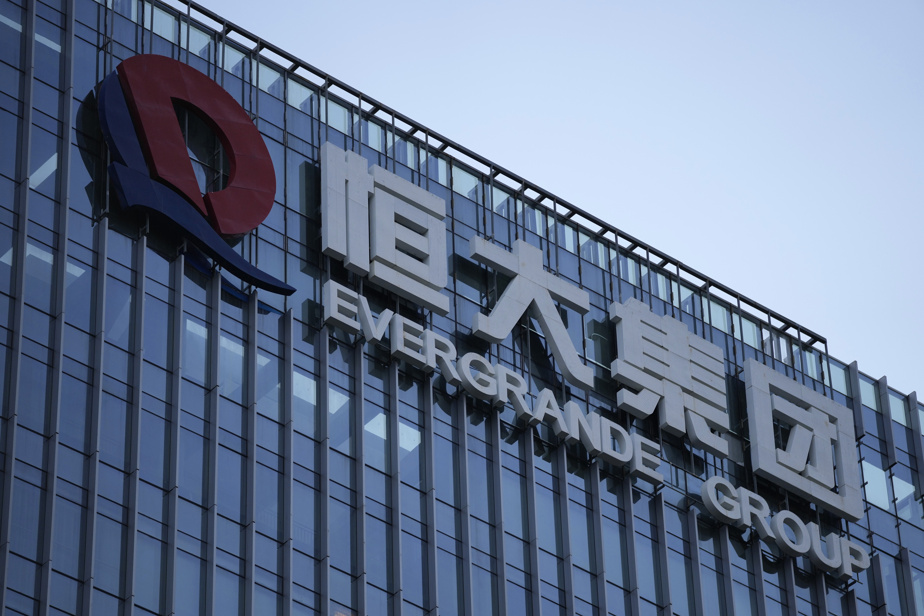(Hong Kong) The boss of the ultra-indebted Chinese real estate developer Evergrande is suspected of “breaking the law” and placed under surveillance by the authorities, the group said on Thursday after the suspension of the listing of its shares on the Hong Kong Stock Exchange .
This announcement comes the day after press information according to which the company’s director, Xu Jiayin, was under house arrest.
Trading in the group’s shares was suspended on Thursday morning on the Hong Kong Stock Exchange. No specific reason was given for this decision.
Purchases and sales of shares of its real estate services and electric vehicle manufacturing subsidiaries were also halted at 9 a.m. (9 p.m. Eastern Time).
“The company has been notified by the competent services that Mr. Xu Jiayin […] is subject to coercive measures due to suspicion of a crime or misdemeanor in violation of the law,” said Thursday evening Evergrande in a press release to the Hong Kong Stock Exchange.
The group did not provide further details. The term “coercive measures” generally refers in China to a form of deprivation of liberty in order to guarantee the smooth running of criminal proceedings.
On Wednesday, the financial information agency Bloomberg, citing anonymous sources, claimed that the founder and boss of the over-indebted group had been arrested at the beginning of the month by the Chinese authorities and was under house arrest.
In mid-September, police in the southern Shenzhen metropolis said they had arrested several Evergrande employees. She did not specify their number or what they are accused of.
According to Caixin, a renowned Chinese economic media, two former Evergrande executives were also placed in detention.
Listings of Evergrande and several subsidiaries resumed at the beginning of August in Hong Kong after a suspension of more than 15 months, due to the company failing to meet the deadlines for publishing its financial results.
On September 27, the company announced that it was unable to issue new bonds because its subsidiary, Hengda Real Estate Group, was “under investigation,” preventing a restructuring plan.
This announcement came two days after the group announced that meetings on the theme of its restructuring, scheduled for Monday and Tuesday, would ultimately not take place.
Evergrande, whose descent into hell regularly makes the headlines, had a colossal balance at the end of June estimated at $328 billion (€307 billion).
This week, the company’s real estate arm was unable to make a large bond redemption payment.
The real estate sector in China has experienced meteoric growth in recent decades, in a country where the purchase of a property even before its construction makes it possible to finance other projects.
But the groups’ debt has reached such levels that the authorities have decided to put an end to it from 2020.
Since then, access to credit has been considerably reduced for these groups, some of whom are now struggling to complete projects, fueling a crisis of confidence among potential buyers which is weighing down prices.
Evergrande’s enormous debt contributed to the worsening of the real estate market crisis in China, leading to fears of global contagion.
“If Evergrande is just the tip of the iceberg and contagion risks materialize, a crisis of confidence in onshore debt markets, which have so far avoided many defaults, could erupt and lead to a severe slowdown,” Heron Lim, deputy economist director at Moody’s Analytics, told AFP.
In recent months, this unprecedented crisis has affected another heavyweight in the sector, Country Garden, long considered financially solid. The group had a considerable debt at the end of 2022, which it estimated at some 1,152 billion yuan (C$213 billion).
In a country where real estate accounts for more than a quarter of GDP and supports an army of low-skilled workers, it has also aggravated the general slowdown in the world’s second largest economy.
The government has set an economic growth target of “around 5%” for 2023, which would be one of its worst performances in decades if the period of the COVID-19 pandemic is excluded.
